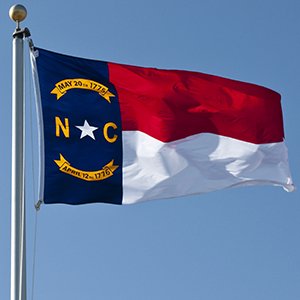
Sometimes it is all about timing. Reports out of the North Carolina State Lottery Commission, which oversaw the rollout of online sports betting in the state, indicate a great desire for the activity. How much? Within hours of launching in March, eight figures in revenues (and payouts) had been won by North Carolinians.
ACC Tournaments Draw the Bettors
The NCSLC chose the perfect time to start the state’s online sports betting operations. At noon on March 11, the windows opened for wagering online in the state. Not coincidentally, the ACC Men’s Basketball tournament started the next day, and the bettors came out in droves to put their action down. Within twelve hours of the opening of the new industry, $23.9 million had been wagered; the players were winning, too, as $12.2 million in winnings were paid out to winning bets.
It is conceivable that much of the action over the first week came from the ACC Tournament and, by extension, the NCAA Tournament. The end of the first week took into account the announcement of both the men’s and women’s brackets, and by that point, online sports betting was roaring. Over the first week, $198.1 million had been wagered online, with $141.6 million in payouts to winning bettors. The gross wagering revenue, of which North Carolina will take 18% in taxes, was nearly $43 million.
Governor Roy Cooper of North Carolina signed this and other changes to North Carolina gambling laws last year. The new regulations allow not only online sports betting but also pari-mutuel wagering on horse racing and for potential live horse racing in the future. Before 2023, only the tribal casinos operated by the Cherokee Indian tribes in the state could offer sports betting at their operations.
Is Texas Looking at Gaming?
With the blowout success of North Carolina’s online sports betting industry – and the continued revenues generated by the Florida Seminole Indians online and live sports betting outlets – will other states begin to look towards the activity? Right now, thirty-eight states have authorized some form of sports betting, either live or online, after the 2018 Supreme Court decision that opened the door for the activity. Two states, Hawaii and Utah, have bans preventing it, leaving only ten states that could be available for business.
One of those possibilities is the state of Texas. The second largest state in the U. S., behind only California, had legislation in the Texas State Legislature that would have opened gaming in several formats, including online sports betting. That legislation did not get out of committee last year, but that is not stopping some from suggesting it again.
Mark Cuban, the former owner of the National Basketball Association’s Dallas Mavericks, sold his interests in the team to Miriam Adelson, the widow of Las Vegas Sands Corporation owner Sheldon Adelson, in late 2023. This, along with the ownership of the NBA’s Houston Rockets in casino magnate Tilman Fertitta, has led to conclusions that there could be a new drive to casinos in the Lone Star State. Another major sports franchise owner, Jerry Jones of the National Football League’s Dallas Cowboys, has suggested a referendum on casinos and other gambling outlets for Texas voters, saying “it will give Texans the ability to decide for themselves.”
If a state like North Carolina can bring in $200 million in revenues in one week, it demonstrates the power of sports betting. It also could force other players to seriously examine if it would work for them.


















